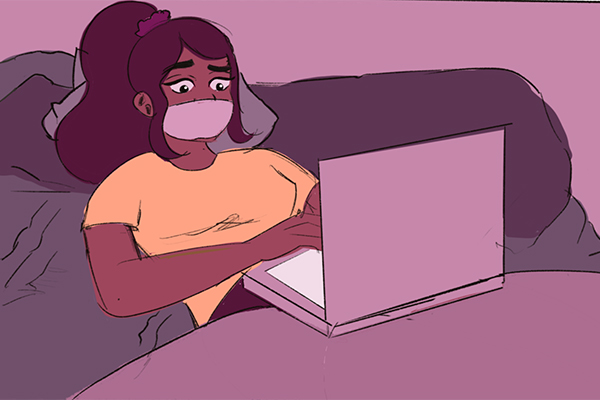Editor’s note: This story is part of The Daily Texan’s coverage of how coronavirus concerns are affecting UT-Austin. Read the rest of our coverage here.
Professors and faculty have adapted their methods of teaching to accommodate students afflicted by the COVID-19 pandemic as it continues to spread through Texas.
Student Emergency Services, the provost and professors have made accommodations for infected students or students with infected family members by creating forms that alert the University and by making assignments flexible.
In March, Student Emergency Services created a COVID-19 specific form for students to fill out if they were experiencing symptoms.
Sara Kennedy, director of strategic and executive communications, said the Counseling and Mental Health Center, University Health Services and the provost’s office collaborated on the form with SES by sending in questions they wanted to be included.
“We've created a system to streamline the process so that it is easier and simpler for our students to get support, to be connected to the different resources and services that can support them so that they don't have to tell multiple people different things,” Kennedy said. “They're getting what they need, just through one stop.”
The form includes questions such as if the student has access to a thermometer, if they have access to food, if the student will be self-isolating and if the student would like mental health services.
Kennedy said the form can connect students to the CMHC and have food delivered from UT Outpost if they live near campus. She said all portions of the form are optional.
“On top of (these services), the colleges and schools will be notified as well,” Kennedy said. “We worked with the provost’s office so that we'd be able to provide them with information about students so that they're able to assist us with notifying faculty about the academic accommodations necessary for a student.”
Liesl Nydegger, an assistant professor in the Department of Kinesiology and Health Education, said she has adjusted her class by making smaller assignments pass/fail grades, being understanding if students cannot participate during the class period and increasing out-of-class discussions.
"I try to keep up the engagement but at the same time totally (understand) when students … might be homeschooling their siblings,” Nydegger said. “They might be taking care of a family member or … they might be sick themselves.”
Nydegger said a student has told her they have COVID symptoms. She said she has tried to be accomodating for the student by checking in with them to make sure they are doing well and granting extensions on projects.
“I’m treating it as if anybody were sick … but in this case, I’m not requiring any documentation,” Nydegger said. “I’ve been checking in more frequently, especially if she wasn’t showing up to class then I would absolutely check in.”
Neuroscience freshman Nikki Dunmoye said although she has not been ill, her professors have been making general accommodations. Most of the problems she has experienced have been through technology issues kicking students out of tests or not allowing them to complete assignments.
“My professors have been a bit more lenient,” Dunmoye said. “In one of my classes, discussions can be turned in a week after the due date. … I would say it’s kind of tricky to balance all the homework in some classes, but it’s not unbearable.”





















